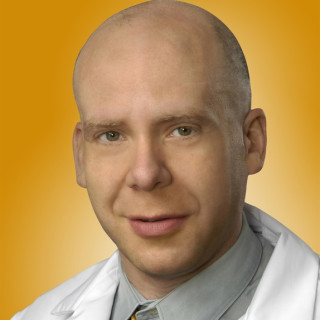The physician job market appears to be strong for many specialties amid a somewhat unsettled economy, based on the results of a Doximity poll of 2,482 physicians.
Roughly 74% of physicians believe the job market is "strong" or "very strong" in their specialty, whereas 12% say it is "weak" or "very weak." The remaining 14% believe the market is "neutral."
“There is totally overwhelming demand now,” said radiologist Traci Pritchard, MD, referring to the high demand for physicians in her specialty.
The U.S. Bureau of Labor Statistics projects a 3% growth rate for physician jobs from 2022 to 2032, matching the average growth rate across all occupations. The rate amounts to approximately 24,200 job openings each year, mostly to fill the positions of physicians who will change careers or retire.
In addition, ongoing concerns over a health care workforce shortage — reported by the American Medical Association and the Bureau of Health Workforce — have likely intensified current demand for physicians, bolstering the physician job market.
The results of the Doximity poll, conducted in June 2023, affirm that the majority of physicians believe the job market in their specialty is strong. The trend holds true for physicians regardless of age and gender: 70% of physicians in their 30s believe the market is strong, 73% in their 40s, 76% in their 50s, 79% in their 60s, and 74% in their 70s. And roughly 74% of both men and women say the job market is healthy.
Yet job market strength can vary depending on the type of medical specialty.
The specialties with the most physicians who believe their market is strong are radiology (93% of radiologists say the market is “strong” or “very strong”), vascular surgery (90%), psychiatry (89%), urology (89%), and cardiology (86%). Conversely, those that believe they have the weakest market are radiation oncology (38%), allergy/immunology (40%), emergency medicine (44%), general surgery (47%), and infectious disease (49%).
Primary care specialties hover in the middle of the pack: 72% of family physicians say the job market is “strong” or “very strong,” as do 68% of internists and 50% of pediatricians. On average, 66% of all primary care physicians say the job market is “strong” or “very strong,” compared with 70% of surgeons and 77% of nonsurgical specialists.
For radiologists, who have the highest percentage that believe their market is strong, rising demand for their work continues to shore up their value. Pundits have discussed at length the looming possibility of AI replacing radiologists through automation. But those concerns have largely left radiologist employment and hiring trends unaffected.
“With AI, I still highly encourage medical students to go into radiology,” Dr. Pritchard said. “We will likely be augmented in productivity with AI. And I welcome this disruptor (not a replacer) if it is done correctly.”
In contrast, several specialties seem to hold a less optimistic outlook. Emergency medicine, for example, faces an interesting dilemma in which the job market appears healthy at present but may not be robust enough to overcome negative sentiment surrounding an oversupply of physicians, as projected in a 2021 study. Still, more recent data have shown a sharp decline in the number of filled emergency medicine residency positions since 2021, which, along with a higher than anticipated attrition rate in the specialty, may dampen concerns over a potential oversupply. In all, only 13% of emergency physicians believe their job market is “very strong” and 31% believe it is “strong,” according to the poll.
“Rapid growth in [available] residency positions has caused concern that a surplus of graduates may not all be able to find desirable jobs in a few years,” said Louis J. Ling, MD, former professor of emergency medicine and associate dean at the University of Minnesota. “Currently, EM graduates are still getting jobs easily.”
Dr. Ling added that external factors such as changing population dynamics could maintain the high demand in emergency medicine.
“Increasing turnover since the pandemic and the unrelenting growth of emergency patients will ensure that many well-trained and prepared emergency physicians will always be needed,” he said.
Another specialty for which the majority of physicians do not believe the job market is “strong” or “very strong” is infectious disease (ID).
“No one wants to do ID so much any more,” said Patrick Aufiero, MD, an ID physician in New Jersey. Instead, Dr. Aufiero noted that many internal medicine residents prefer positions that have a more simple path toward employment by a health care institution rather than private practice.
“Many physicians do not want many more years of training and prefer the hospitalist route, as you just come in and work and do not have to actually run a practice,” he said. “The market is not strong for ID, as many hospitals self-refer and thus make much less, if any, referrals to the private ID sector.”
Regardless of market conditions, many physicians seem content with the specialty they decided to pursue — including Dr. Aufiero.
“ID is the best specialty as it encompasses all the other specialties, and there is constant change, and even now, new diseases are cropping up,” he said. “I would not have changed a thing in my choice.”
How is the job market in your specialty? Share your experiences below.
Image by Denis Novikov / GettyImages







